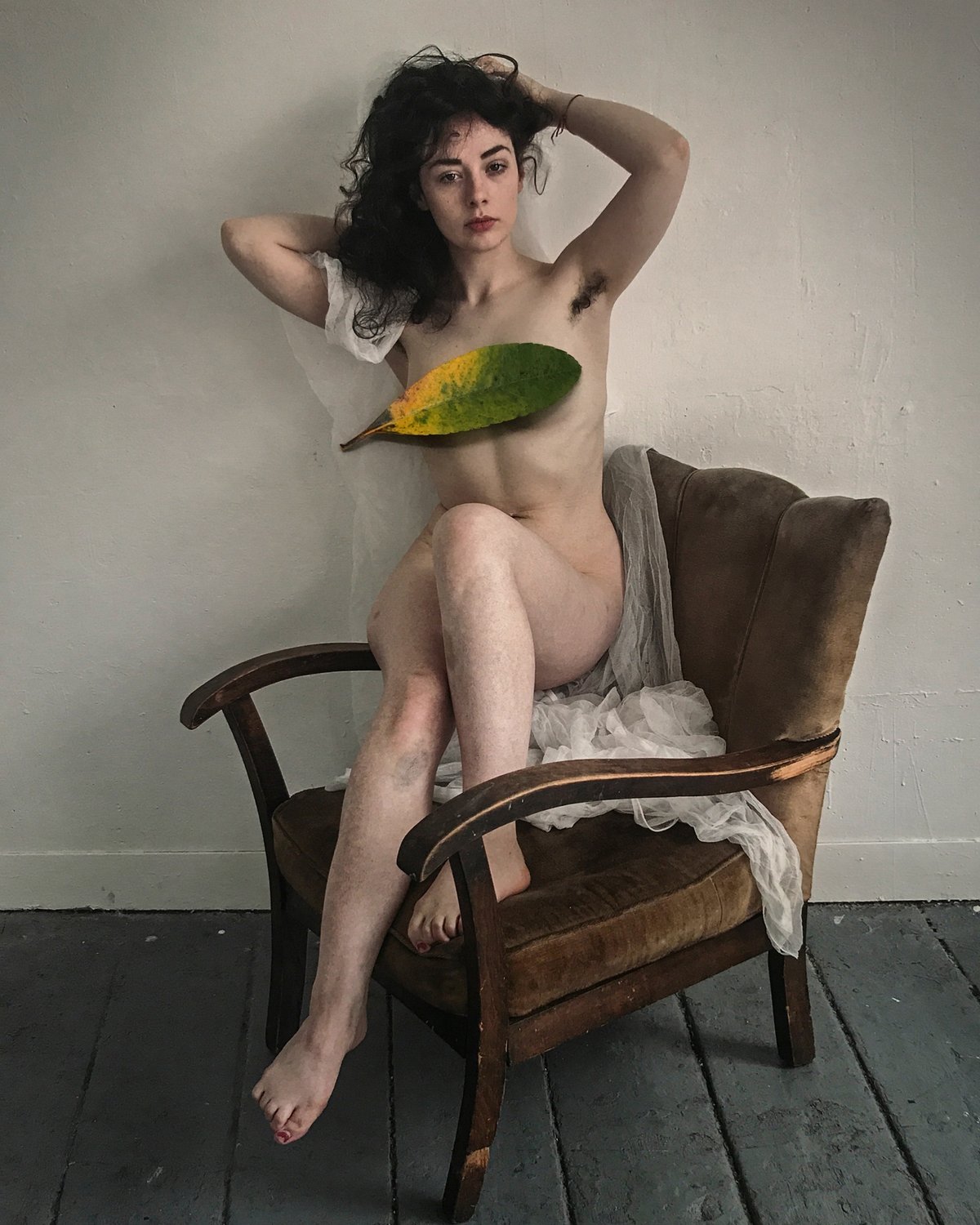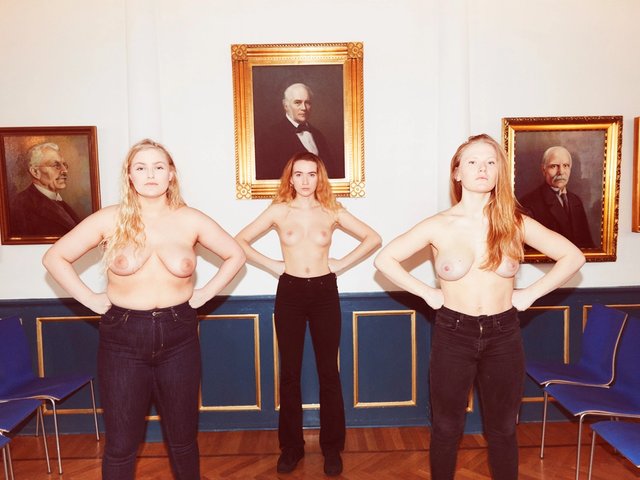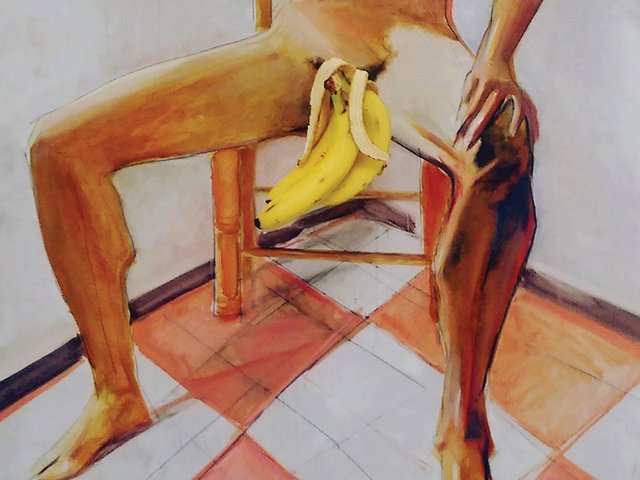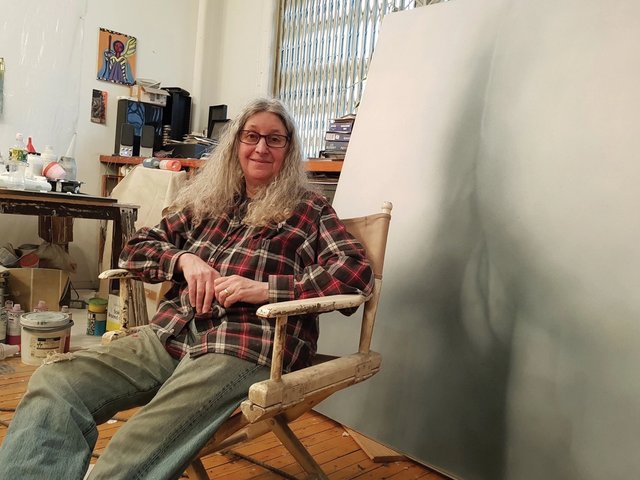The Dublin-based photographer Dragana Jurisic has had her Instagram account shut down and her images removed from Facebook after she posted one of her works on the social media platforms. The photograph shows a naked model whose breasts have been “self-censored with a leaf” for the purpose of going online, Jurisic says.
The image was posted last week and “was online for about 24 hours and liked more than 500 times” before the account was “deleted without any prior warning”, Jurisic says. As she had “not posted anything on Instagram that would be inappropriate according to their policies”, the photographer at first thought her account had been hacked and contacted Instagram to let them know. She received an email response telling her that the account had been “disabled for not following Terms of Use”. Jurisic asked for the specific reasons but got no reply.
When the photographer posted the same image on Facebook, which owns Instagram, she was “blocked from posting and commenting”. Furthermore, “posts my friends shared on Facebook have been taken down en masse without explanation”, she says.
This is the latest in a number of instances of social media platforms censoring works of art, with even a 30,000 year-old Stone Age statue coming under scrutiny for being “pornographic” and was removed from Facebook.
Jurisic says she used Instagram as “a sort of a digital archive of my work” and although she has back-ups of the images she has lost “dates, times, notes, comments and discussions that developed around many of my posts”. When she contacted Teru Kuwayama, a photo community manager at Instagram and Facebook—who Jurisic says was “helpful”—he told her that the “account was removed for repeated nudity” and that when he had asked for the return of the “seven years of data”, the company refused. Instagram did not immediately respond to a comment request at the time of publication.
The photograph is of the artist and poet Caoimhe Lavelle and forms part of Jurisic’s 100 Muses project, which is about self-representation, Jurisic says. The women in the series “directed themselves and chose their own image”, she adds. The posted photograph was a test print for a forthcoming exhibition titled Naked Truth at the Crawford Art Gallery in Ireland, which will also include works by Francis Bacon, Dorothy Cross, Robert Fagan and Mainie Jellett. Jurisic had added a leaf to the image to adhere to Instagram’s terms of use.
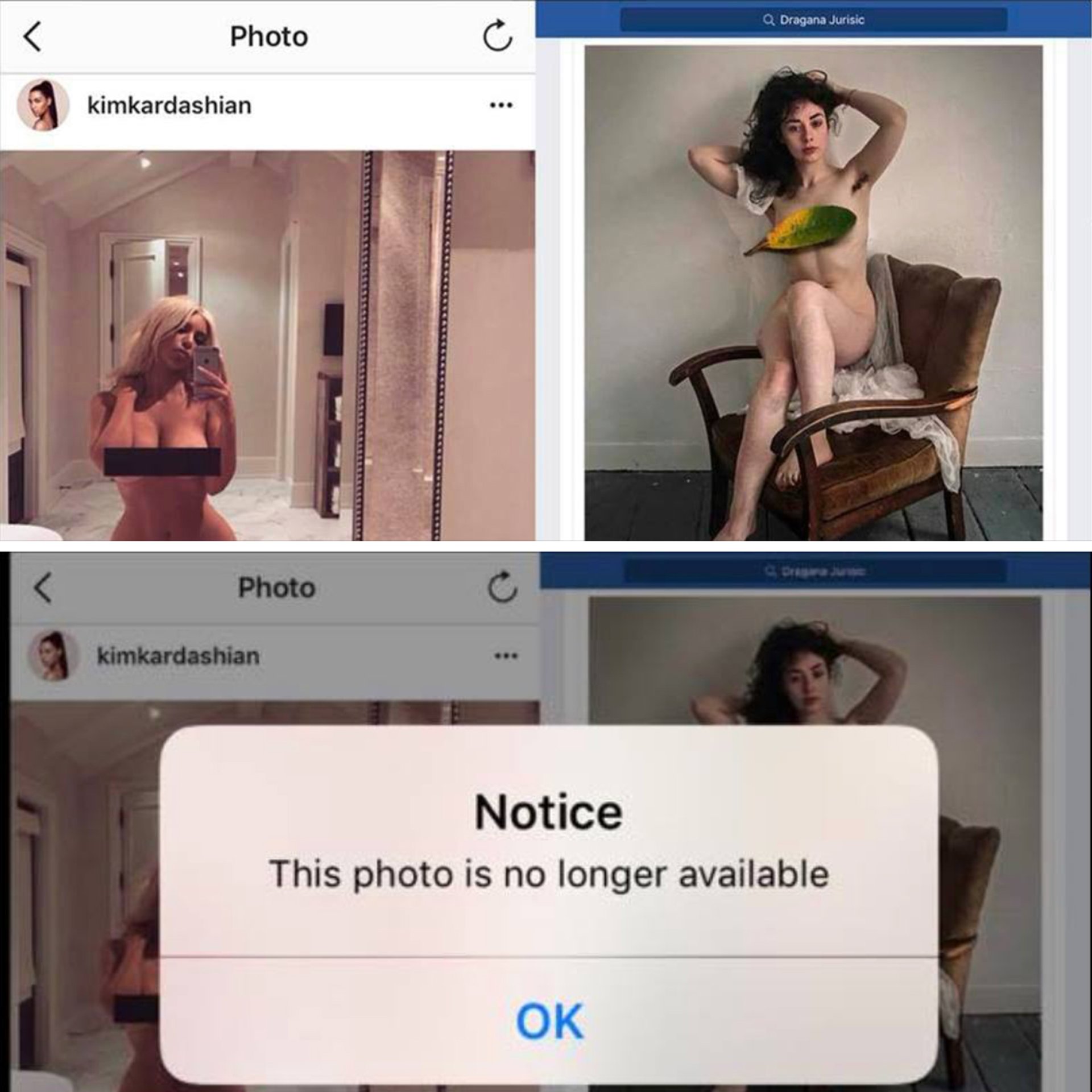
When Jurisic's photograph was posted by frineds on Facebook, comparing it to Kim Kardashian's, the posts were removed Dragana Jurisic
Instagram’s terms say: “You may not post violent, nude, partially nude, discriminatory, unlawful, infringing, hateful, pornographic or sexually suggestive photos or other content via the Service.”
A number of Jurisic's peers have pointed out on social media that the work in questions is no more contentious than a nude image shared by the celebrity Kim Kardashian West, who has one of the largest followings on the platform.
“Interestingly a friend of mine tried reporting a soft porn Instagram account by a male photographer for violation of terms—these images show much more than any of my posts did—and she got a response that they do not violate any terms,” Jurisic says. “This is mind-boggling to me. It boils down to female nipples and hair.”
Jurisic says she has no objections to women, such as Kardashian, posting their “highly sexualised images on line”. She adds: “I don't want to shame any woman's body or harm sex workers, even inadvertently, but there is something very broken with Instagram’s double standards.”
The Guardian photography critic, Sean O’Hagan, was one of the many across social media reposting the image and commented that the Jurisic’s account had been “permanently expunged by the Instagram Stalinists who think it is acceptable to censor artists”.


